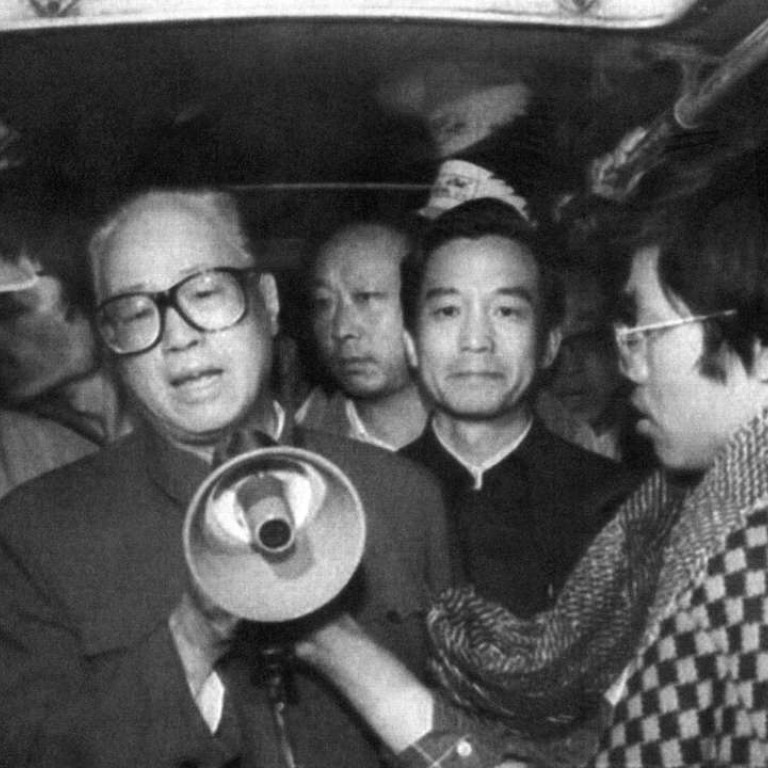
Liberal leader Zhao Ziyang warned Hong Kong to put stability before democracy
Late premier’s comments reveal a more conservative outlook on political developments in the city
Democratic development in Hong Kong should not proceed too quickly or the city’s stability and prosperity would be undermined, late liberal Chinese leader Zhao Ziyang warned in 1989.
Zhao cautioned against risking instability in the city during a meeting in Beijing with the Study Group on the Future of Hong Kong on March 18, 1989. That was two months before he was ousted over his sympathy for the Tiananmen Square pro-democracy movement before the crackdown that followed.
“The question of democratic development in Hong Kong should be considered in the context of maintaining the city’s stability,” he said. “Prosperity of Hong Kong can’t be guaranteed if the city is unstable.”
While Beijing’s conservative stance on Hong Kong’s democratic development since the 1980s is widely known, Zhao’s rare remarks on the issue appear to deviate from his liberal image.
Zhao, then Communist Party general secretary, maintained that Hong Kong’s transition from the colonial political structure to representative government should not proceed too fast.
“The development of democracy must take into account the actual situation in Hong Kong and can’t develop simply for the sake of democracy,” he said. “It must proceed from the perspective of maintaining Hong Kong’s stability and prosperity.”
The record of Zhao’s conversation with the study group is compiled in The Collected Works of Zhao Ziyang (1980-1989), published by the Chinese University Press on Wednesday.

Among those in the study group were Princeton University economics professor Gregory Chow, and Hong Kong tycoons Tung Chee-hwa and Gordon Wu Ying-sheung. Tung went on to become the city’s first chief executive in 1997.
Zhao’s conservative stance on Hong Kong’s democratic development was declared a year ahead of the promulgation of the Basic Law, which governs the city’s post-handover political structure.
In early 1984, the student unions of the University of Hong Kong and Chinese University wrote to Zhao stating their support for the city’s handover and calling for democracy after 1997.
Zhao, who was Chinese premier at the time, replied in a letter that it was “only right and proper” to adopt a democratic system after 1997.
But during his meeting with the study group in 1989, Zhao said the confidence of Hong Kong people would be undermined if there was a change of government every few months like what happened in Italy.
Ching Cheong, a Beijing correspondent for leftist newspaper Wen Wei Po in the 1980s, said Chinese leaders were more open-minded on democratic development in Hong Kong before the signing of the Sino-British Joint Declaration in 1984.
Ching noted that Beijing tightened its stance after paramount leader Deng Xiaoping said during his meeting with Basic Law drafters in 1987 that universal suffrage might not necessarily bring about people who loved the country and Hong Kong.
“It is understandable that other leaders like Zhao adopted a more conservative stance on democratic development in Hong Kong since then,” Ching said.
Zhao also reiterated that Hong Kong would continue to practise capitalism after 1997, a system different from the mainland’s.
“The aim of ‘one country, two systems’ is to allow you [Hongkongers] to practise liberalisation in Hong Kong,” he said, referring to Hongkongers’ fear about the campaign against “bourgeois liberalisation” introduced by mainland authorities in 1987.

